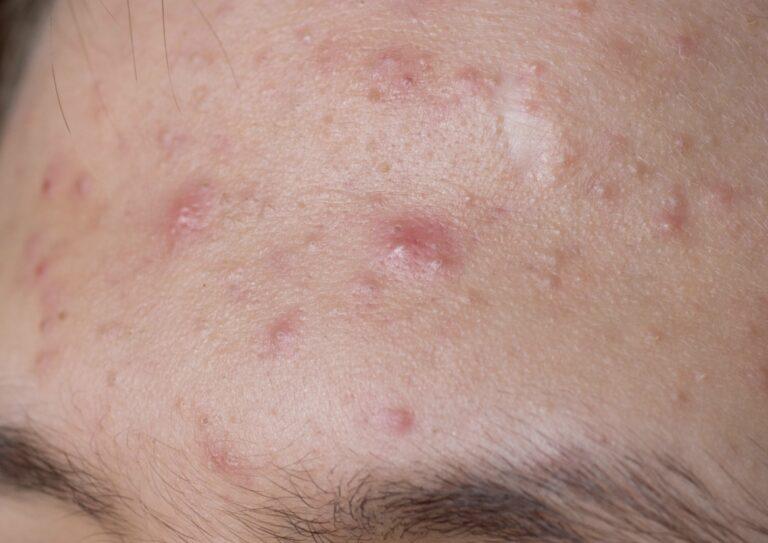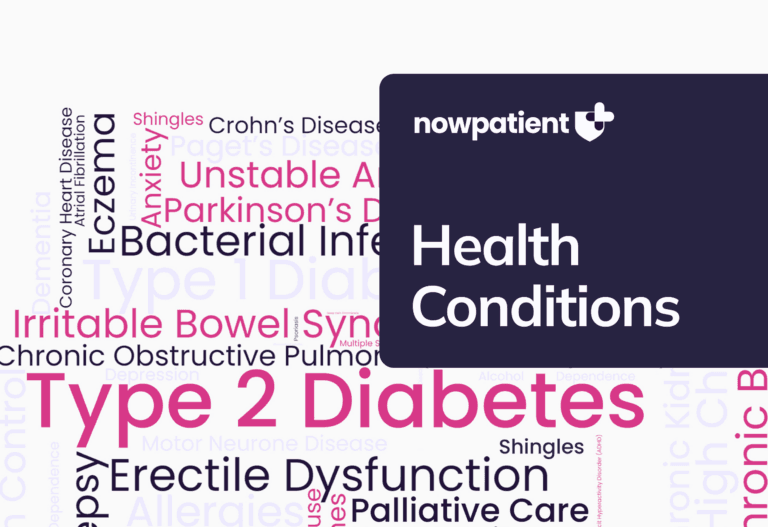
Cystic acne is acne at its worst. It can hit your self-esteem harder than Anthony Joshua; it’s so stubborn it can feel unbeatable. But you can fight back against cystic acne and you can beat it. Here we’ll tell you what you need to know about cystic acne.
What is cystic acne?
Acne is a skin condition that causes pimples and inflammation, usually on your face, but you can get acne elsewhere on your body too. Acne can vary in severity. Mild cases may give you occasional clusters of pimples, but more serious acne can cause widespread swelling and large and persistent pimples. Cystic acne is acne at its most severe.
You get cystic acne when your pimples turn into cysts – pockets of pus in your skin. Cysts can be large, painful, long-lasting, and they usually form in the deeper layers of your skin, so they look more like raised red bumps, rather than the usual white-tipped pimples. You can get cystic acne anywhere. It’s most common on the face, but you can also get cystic acne on your chin, forehead and along your jawline.
What causes pimples?
You get pimples when the pores in your face, also called follicles, get blocked. This usually happens when dead skin cells from your face or the oil your skin naturally produces (sebum), gets into your pores. Your pores can also be blocked by products you put on your face too.
Bacteria that live on your skin then feed on whatever is blocking your pore. As the bacteria builds up, your immune system detects the infection and fights back, triggering inflammation and causing pus to form. All of this gives you the red, raised pimples that usually form a pus-filled tip that you see with regular acne.
What causes cystic acne?
If the infection in a pimple spreads deeper into the lower layers of your skin, it can form pockets of pus and larger, more stubborn pimples like cysts. If this happens your acne turns into cystic acne.
The experts don’t know why some people’s pimples develop into cysts. The causes of acne are well understood and include hormone changes, stress, a bad diet, skin products, medications, even shaving can cause acne. However, we don’t understand why some peoples’ acne becomes cystic. Cystic acne is more common among teens and adults with hormone imbalances, which are fluctuations in hormone levels (cystic acne is often called hormonal cystic acne).
How to tell if you have cystic acne?
So, what does cystic acne look like? The best way to tell if you have cystic acne is to examine the pimples your acne gives you.
Cysts tend to look and feel like large bumps that form deep in your skin and that are surrounded by lots of inflammation. Cysts are usually painful to touch too; a quick press can send pain radiating through your whole face. If your pimples sound like these and not the smaller, white-tipped pimples acne usually causes, you probably have cystic acne.
To make sure, you should see your doctor or a dermatologist (that’s a doctor that specializes in skin) to get a professional diagnosis.
Why am I getting cystic acne all of a sudden?
A range of things can give you cystic acne, but it’s often caused by a change in hormones that makes your skin produce more oil, increasing the number of bacteria you have on your face and making it more likely your pores will get blocked. Fluctuations in hormones could be caused by life changes like puberty, illnesses, treatments, even diet.
Cystic acne treatment options. How do I get rid of cystic acne?
You can treat regular acne with a daily acne skincare routine, over the counter acne products, and by making lifestyle changes like improving your diet. But because cystic acne is so severe these treatments probably won’t be strong enough.
So how to get rid of cystic acne?
You may want to try a prescription acne treatment like a skin product that contains a retinoic acid. These can clear your pores and remove dead skin cells and oil. They even encourage your skin cells to be replaced faster, helping your skin heal and helping reduce the appearance of acne scars. Prescription antibiotics can also be used to fight the infection in your skin and to reduce inflammation.
You can order a product called tretinoin (Retin-A) NowPatient that is an effective and proven treatment for cystic acne.
It’s also sensible to see your doctor or a dermatologist (your doctor can refer you) if you’re worried about your acne or if it proves particularly stubborn.
Does cystic acne scar?
Yes, unfortunately cystic acne can cause scarring. Not everyone who has cystic acne will get scars, but it can happen.
Cystic acne scars form because the cysts permanently damage the deeper layers of your skin. As the cysts form they injure the tissue around them, leaving an indentation which can result in pits and changes to the texture of your skin.
And whilst areas of discoloration on your skin caused by acne can fade over time, scars won’t fade. They can be treated with various procedures however, like filler injections, corticosteroid injections, laser therapy, skin needling as well as with products that contain salicylic acid, alpha hydroxy acids or retinoids. These treatments aren’t perfect and they usually won’t permanently cure your acne scars, but they can produce notable results.
How to avoid scarring?
We won’t sugar coat it, there’s no guaranteed way of avoiding scaring if you have cystic acne. The following can help to reduce the chances of it happening and the severity of any scars though:
Prevent and treat your acne
If you actively treat your acne you can reduce the number of outbreaks you have and limit their severity, making scaring less likely. A daily skincare routine, using prescription acne treatments, avoiding harsh products and protecting your skin from the sun can all help.
Don’t pick or try and pop your spots
Can you pop cystic acne? This is a big one. Picking at your acne can damage your skin more and trying to pop your pimples is a big no. If you squeeze a cyst it can damage the skin around it and it can even push the pus and bacteria deeper, making your infection even worse. It can be tempting, especially if you can feel all that pus inside, but cysts don’t burst like regular pimples and you increase the risk of acne scars.
Remember, look after your skin, find an appropriate acne treatment, and never pick or squeeze.
Sources
Medical Disclaimer
NowPatient has taken all reasonable steps to ensure that all material is factually accurate, complete, and current. However, the knowledge and experience of a qualified healthcare professional should always be sought after instead of using the information on this page. Before taking any drug, you should always speak to your doctor or another qualified healthcare provider.
The information provided here about medications is subject to change and is not meant to include all uses, precautions, warnings, directions, drug interactions, allergic reactions, or negative effects. The absence of warnings or other information for a particular medication does not imply that the medication or medication combination is appropriate for all patients or for all possible purposes.










